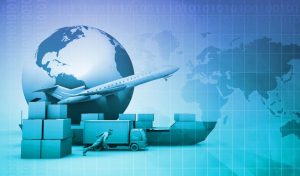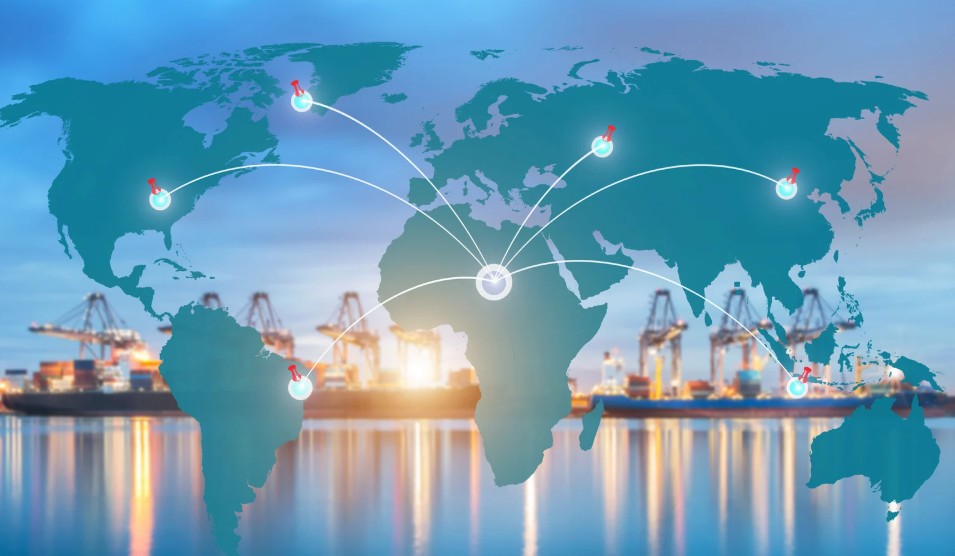Global trade’s getting a major overhaul thanks to new tech. Stuff like blockchain, artificial intelligence, and automation is flipping the script on how goods and services move around the world.
The World Trade Organization pegged global trade at $25 trillion back in 2022, and honestly, it’s hard to imagine hitting that number without these innovations. Businesses are tapping into new markets and smoothing out their operations like never before.
It’s all about efficiency, cutting costs, and making things clearer across borders. Let’s dig into how this tech is shaking things up—and what it means, good and bad.
How Emerging Technologies Are Reshaping Global Trade?
Inter-Blockchain Communication

Blockchain’s a big player in this trade revolution. It’s this decentralized, super-secure way to keep track of transactions—perfect for building trust when you’re dealing across countries.
One cool piece of it is the inter-blockchain communication protocol. Basically, it’s what lets different blockchains talk to each other. So let’s see how inter-blockchain communication protocol works.
Picture it like a bridge between networks, so they can swap info and handle transactions without a hitch. That’s huge for global trade—suddenly, you’ve got transactions bouncing between systems, all verified and locked down tight.
It cuts fraud risks and makes supply chains way easier to manage. You can track goods, double-check they’re legit, and keep everything moving smoothly.
Artificial Intelligence and Data Analytics
Then there’s artificial intelligence,AI’s a game-changer too. It chews through massive piles of data fast and spits out insights that’d take humans forever to figure out.
In trade, that means spotting trends, guessing what customers want, or fine-tuning supply chains. Say you’re a company—AI can warn you if coffee prices are about to spike or if skinny jeans are falling out of fashion.
Pair it with data analytics, and you’re dodging overstock disasters or empty shelves. Plus, AI’s taking over boring stuff like customs paperwork, inventory tracking, even shipping schedules. It saves money and keeps things humming along, which is why trade’s booming.
Automation and Supply Chain Optimization

Automation’s another heavy hitter. Robots and smart systems are changing how goods get made, shipped, and dropped off.
In warehouses, you’ve got bots zipping around, packing boxes, and loading trucks. Ports and shipping hubs use automated setups to process stuff faster, no more waiting around for someone to sign off.
It’s quicker, less messy (fewer human screw-ups), and you can track shipments down to the minute. That speed and accuracy? It’s making trade cheaper and opening doors for smaller players who couldn’t keep up before.
Cross-Border Payments and Cryptocurrencies
Paying across borders has always been a headache—slow banks, crazy fees, the works. Enter cryptocurrencies and blockchain.
They’re shaking up the payment game big time. Crypto’s fast, cheap, and doesn’t care about exchange rates or bank holidays. For trade, that’s gold—delays kill cash flow, and no one’s got time for that.
Small businesses especially love it; they don’t need fancy bank connections to play on the global stage anymore. It’s not perfect yet, but it’s a glimpse of where things are headed.
Cybersecurity and Fraud Prevention

Of course, going digital comes with risks—hackers don’t mess around. That’s where blockchain shines again. It’s built to be tamper-proof and see-through, so everyone’s on the same page.
Fraud gets harder when every move’s tracked and locked in. It’s also great for sniffing out fakes—think counterfeit bags or knockoff meds. As trade leans more on tech, staying ahead of cyber creeps is non-negotiable, and these tools are stepping up.
The Future of Global Trade
Where’s all this headed? The future’s tied to how far we push blockchain, AI, and automation. Trade’s going to get slicker, safer, and more open to everyone.
Costs will keep dropping, and markets that used to be out of reach won’t be anymore. But it’s not all smooth sailing—rules and standards are lagging.
Governments and big organizations need to team up, figure out how to keep this stuff fair and aboveboard. If they pull it off, we’re looking at a trade system that actually works for everybody.
Conclusion
Tech like blockchain, AI, automation, and crypto—it’s rewriting the rules of global trade. Things are faster, clearer, and cheaper, and businesses can pivot on a dime when the market shifts.
As this keeps rolling, it’s going to define how we buy, sell, and move stuff around the world.
The trick is jumping on board and making it work—there’s a ton of potential out there waiting to be grabbed.
Author Profile

- Blogger by Passion | Contributor to many Business Blogs in the United Kingdom | Fascinated to Write Blogs in Business & Startup Niches |
Latest entries
 BusinessJanuary 9, 20266 Fastest Cash House Buyers in the UK 2026
BusinessJanuary 9, 20266 Fastest Cash House Buyers in the UK 2026 BusinessDecember 12, 2025The Smart SME’s Guide to Future-Proofing Physical Assets
BusinessDecember 12, 2025The Smart SME’s Guide to Future-Proofing Physical Assets FinanceOctober 28, 2025How to Measure the ROI of Your Promotional Product Campaigns?
FinanceOctober 28, 2025How to Measure the ROI of Your Promotional Product Campaigns? Home & LivingOctober 4, 2025Moving Forward When Leicester Family Dynamics Change
Home & LivingOctober 4, 2025Moving Forward When Leicester Family Dynamics Change





